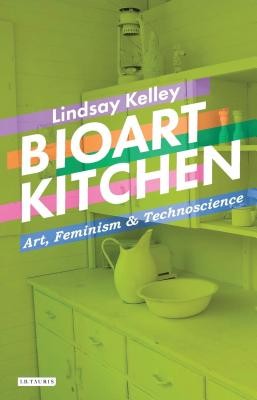
- We will send in 10–14 business days.
- Author: Lindsay Kelley
- Publisher: I. B. Tauris & Company
- Year: 2016
- Pages: 256
- ISBN-10: 1784534137
- ISBN-13: 9781784534134
- Format: 14 x 21.8 x 2.3 cm, hardcover
- Language: English
- SAVE -10% with code: EXTRA
Reviews
Description
What do new technologies taste like? A growing number of contemporary artists are working with food, live materials and scientific processes, in order to explore and challenge the ways in which manipulation of biological materials informs our cooking and eating. 'Bioart', or biological art, uses biotech methods to manipulate living systems, from tissues to ecologies. While most critiques of bioart emphasise the influences of new media, digital media, and genetics, this book takes a bold, alternative approach. Bioart Kitchen explores a wide spectrum of seemingly unconnected subjects, which, when brought together, offer a more inclusive, expansive history of bioart, namely: home economics; the feminist art of the 1970s; tissue culture methodologies; domestic computing; and contemporary artistic engagements with biotechnology.
EXTRA 10 % discount with code: EXTRA
The promotion ends in 19d.02:08:35
The discount code is valid when purchasing from 10 €. Discounts do not stack.
- Author: Lindsay Kelley
- Publisher: I. B. Tauris & Company
- Year: 2016
- Pages: 256
- ISBN-10: 1784534137
- ISBN-13: 9781784534134
- Format: 14 x 21.8 x 2.3 cm, hardcover
- Language: English English
What do new technologies taste like? A growing number of contemporary artists are working with food, live materials and scientific processes, in order to explore and challenge the ways in which manipulation of biological materials informs our cooking and eating. 'Bioart', or biological art, uses biotech methods to manipulate living systems, from tissues to ecologies. While most critiques of bioart emphasise the influences of new media, digital media, and genetics, this book takes a bold, alternative approach. Bioart Kitchen explores a wide spectrum of seemingly unconnected subjects, which, when brought together, offer a more inclusive, expansive history of bioart, namely: home economics; the feminist art of the 1970s; tissue culture methodologies; domestic computing; and contemporary artistic engagements with biotechnology.


Reviews